As the back-to-school season rolls around after winter break, the air is filled with a mixture of excitement and anxiety. Homework, quizzes, and exams become a staple of your daily routine once again, and with them comes the crucial need to maintain peak energy and positive mood. Especially for those of you taking AP exams that are coming right around the corner (4 months from now, but who’s counting?) and standardized tests, it’s easy to overstress and face terrible burnout while studying.
But what if I told you that the key to acing those exams isn't just buried in textbooks but also lies on your plate? In this comprehensive guide, I will delve into the intricate relationship between food, energy levels, and mood, exploring the do's and don'ts of pre-exam nutrition.

Image Credit: Olsson from Pexels
Understanding the Connection: Food, Energy, and Mood
Before I jump into the list of brain-foods, it is crucial to understand how the choices you make in the kitchen can significantly impact our energy levels and mood. Our brains are like high-performance engines, constantly in need of the right fuel to function optimally. Food serves as the primary source of this fuel, influencing cognitive function, memory, and emotional well-being.
Foods to Embrace Before an Exam
When it comes to preparing for an exam, not all foods are created equal. Some can supercharge your brain, enhancing focus and memory retention. Here are some of the best brain-boosting options to consider incorporating into your pre-exam meals and snacks!
#1. Berries: Nature’s Brain Boosters
Berries, like blueberries, strawberries, raspberries, and blackberries, are not just delicious; they are packed with antioxidants, vitamins, and fiber. These antioxidants help your brain by reducing stress, and some studies suggest they might even slow down memory decline. Adding to their appeal, berries also contain anthocyanins, pigments responsible for their colors, which have anti-inflammatory properties.
Start your day with a bowl of mixed berries added to your cereal or yogurt. For a quick snack, grab a handful of fresh berries or blend them into a smoothie. Layer them over a slice of whole-grain toast with almond butter for a delightful twist!
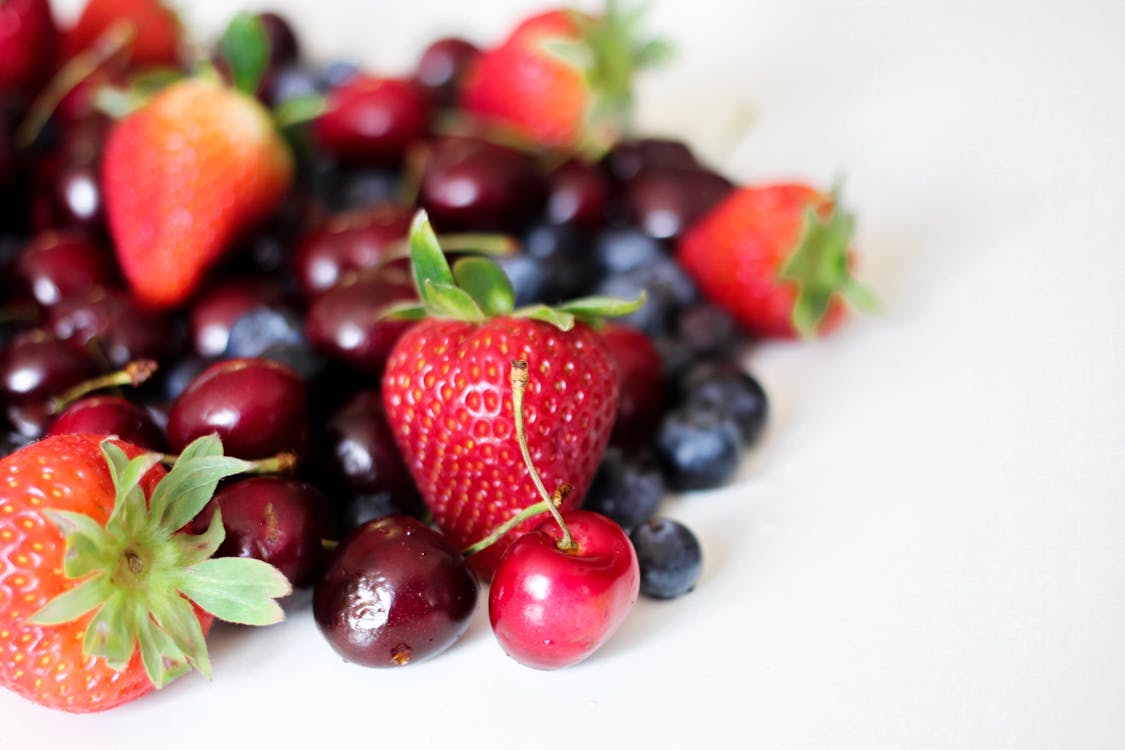
Image Credit: Doan from Pexels
#2. Citrus Fruits: Vitamin C Powerhouses
The citrus family, including oranges, grapefruits, lemons, and limes, offers a powerful infusion of vitamin C. This essential nutrient serves as a robust antioxidant critical for neurotransmitter synthesis. Vitamin C's neuroprotective effects contribute to improved mental agility, reducing the risk of cognitive decline.
Additionally, the citric acid in these fruits enhances iron absorption, a crucial element for preventing cognitive fatigue. Make a habit of starting your morning with a glass of freshly squeezed orange juice or incorporate slices of citrus fruits into your water for a refreshing twist. Create a simple citrus vinaigrette for your salads by combining citrus juice, olive oil, and a pinch of salt.
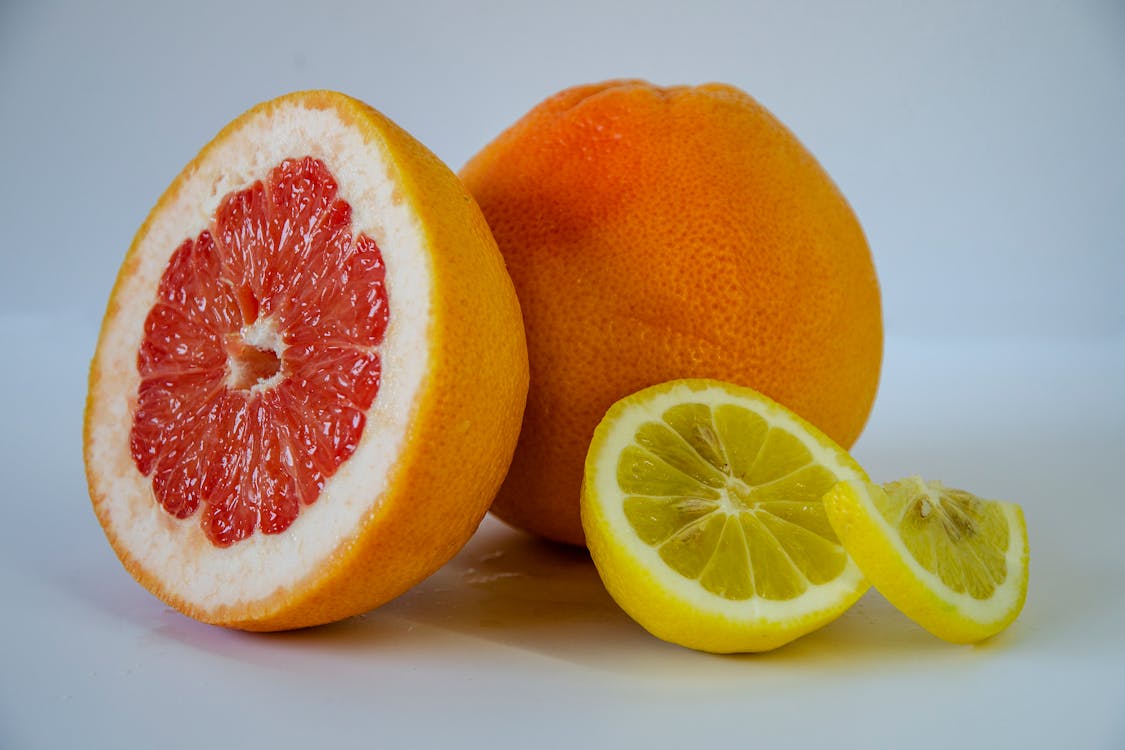
Image Credit: Stanojevic from Pexels
#3. Dark Chocolate Muffins: A Treat for Your Brain
Dark chocolate, especially when baked into muffins, is a delightful treat with cognitive perks. Rich in flavonoids, it helps increase blood flow to the brain, promoting alertness and concentration. Moreover, the cocoa content in dark chocolate triggers the release of endorphins and serotonin (happiness chemicals!), lifting your mood during those intense study sessions.
Treat yourself to a dark chocolate muffin as an afternoon snack or dessert. You can also add dark chocolate chips to your oatmeal or yogurt. Consider a cozy cup of hot cocoa made with dark chocolate for a comforting study break treat. Just be sure that the chocolate you are choosing is high quality chocolate, with a cocoa content of 70% to obtain maximum health benefits!
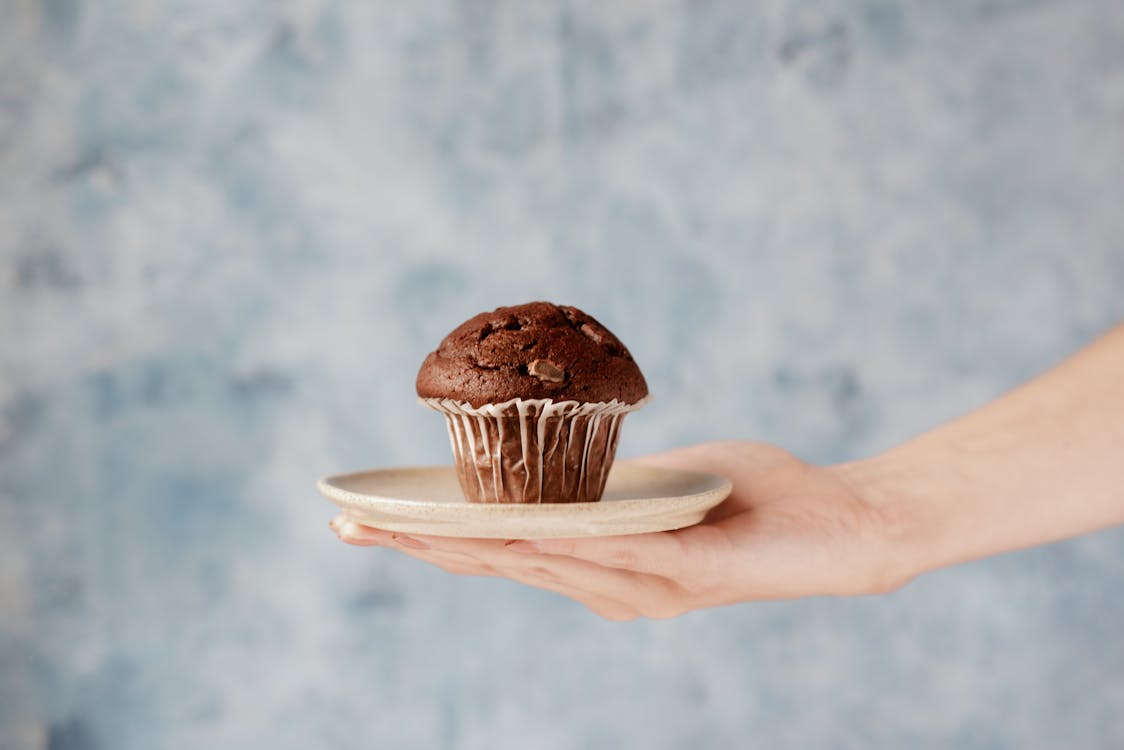
Image Credit: Lusina from Pexels
#4. Trail Mix: A Balanced Snack Mix
A well-crafted trail mix, with nuts (like almonds, walnuts), seeds (pumpkin, sunflower), and dried fruits (raisins, apricots), provides a mix of healthy fats, protein, and carbohydrates. This combo ensures a steady supply of energy for focused studying. Nuts, in particular, bring omega-3 fatty acids that support overall brain health.
Prepare small batches of trail mix and keep them in portioned containers for easy snacking during study breaks. Sprinkle it over your morning cereal or yogurt. Try adding dark chocolate chips or dried berries for an extra flavor boost! But be mindful of when you eat your delicious trail mix, especially around those with nut allergies!
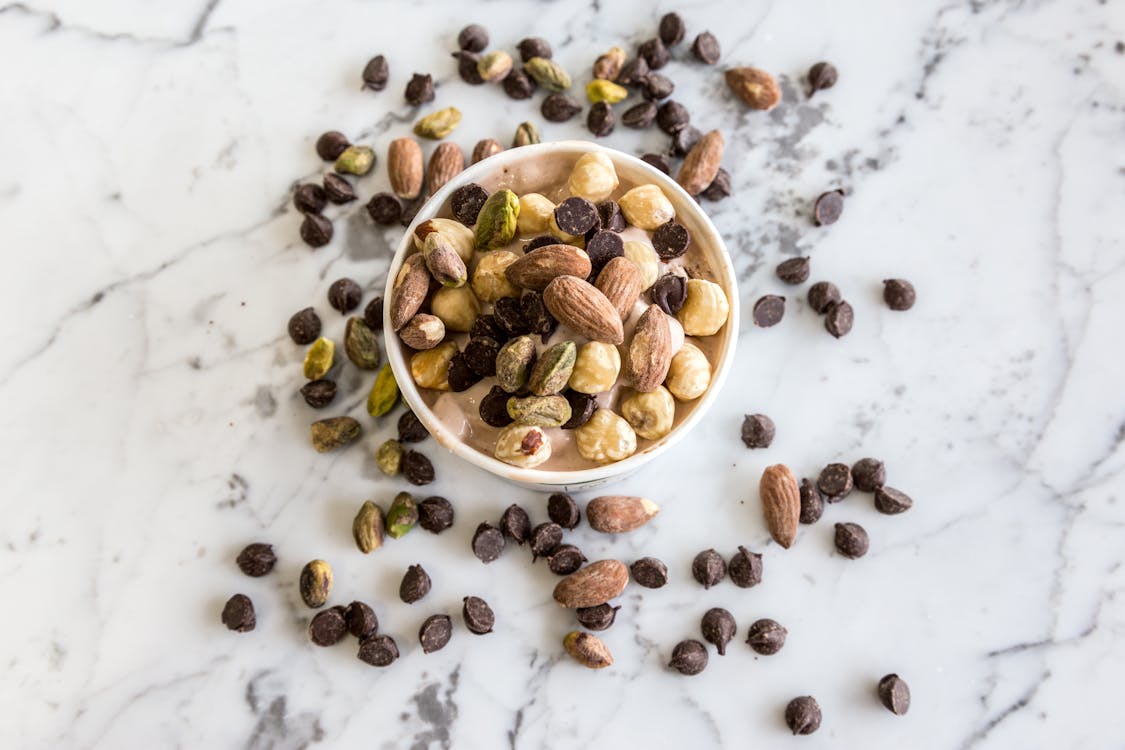
Image Credit: Disponett from Pexels
#5. Water
Don't forget the power of water! Dehydration can lead to fatigue and reduced cognitive function. Stay hydrated before and during your exam to maintain peak performance.

Image Credit: Johnson from Pexels
#6. Salmon: Nutritional Omega-3s
Salmon, a fatty fish loaded with omega-3 fatty acids, is a nutritional powerhouse for brain health. These fatty acids play a vital role in supporting cognitive function and memory. Salmon also contains astaxanthin, an antioxidant that helps protect the brain from oxidative stress.
Aim to include salmon in your meals at least twice a week! Grilled or baked salmon can be paired with a variety of sides, making it a versatile and brain-boosting addition to your diet. Consider a salmon and quinoa bowl for a wholesome and nutritious meal.
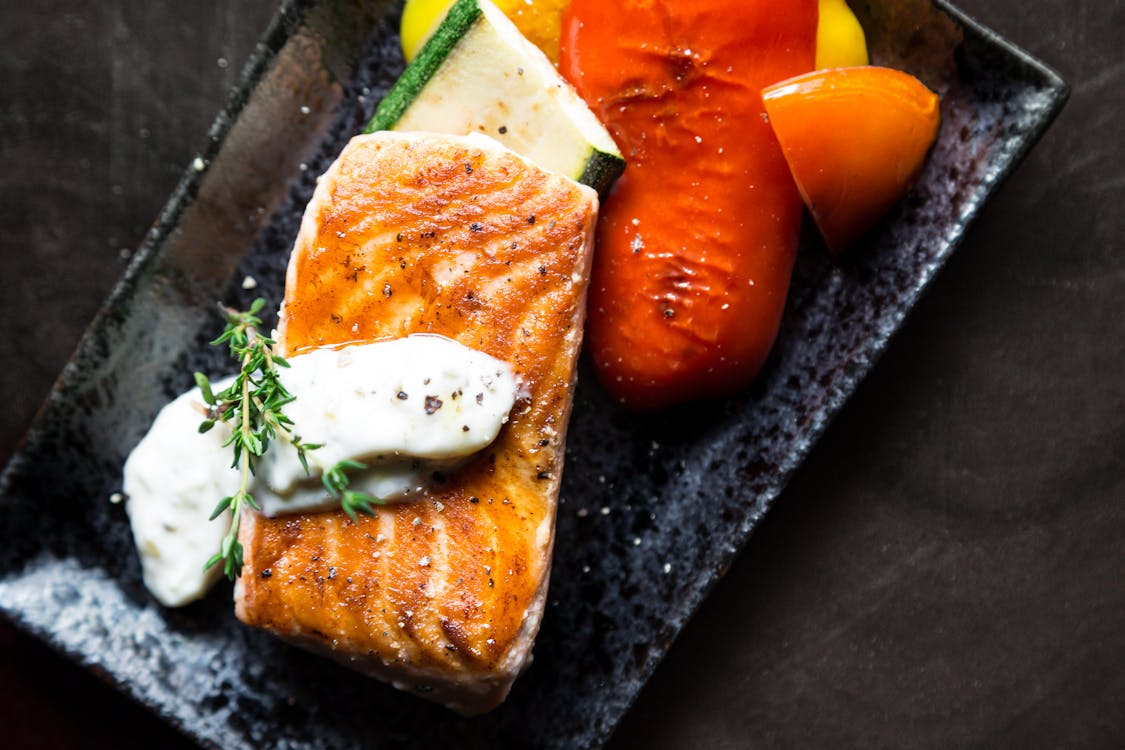
#7. Leafy Greens: Brain-Boosting Veggies
Dark leafy greens like spinach, kale, and Swiss chard are packed with vitamins, minerals, and antioxidants. Folate, found in abundance in these greens, is incredibly benefiial for cognitive function and mood regulation. These greens also contain nitrates, which can enhance blood flow to the brain, ensuring it gets the oxygen and nutrients it needs.
Create a colorful salad with a mix of leafy greens, and add your favorite toppings. Sneak greens into smoothies by blending them with fruits for a nutritious and tasty beverage (you most likely won’t even be able to taste them!) Incorporate sautéed greens into pasta dishes or as a side to your main course.

Image Credit: Sollie from Pexels
#8. Eggs: Memory Support in a Shell
Eggs, especially the yolks, are a good source of choline, a nutrient crucial for cognitive function. Choline plays a role in memory support and neurotransmitter synthesis. Including eggs in your pre-exam meals can contribute to sustained mental alertness.
Enjoy eggs for breakfast in various forms – scrambled, poached, or as an omelet. They can also be a protein-packed addition to salads or sandwiches. Experiment with different egg dishes, such as a veggie-packed frittata or egg muffins for a convenient grab-and-go option!
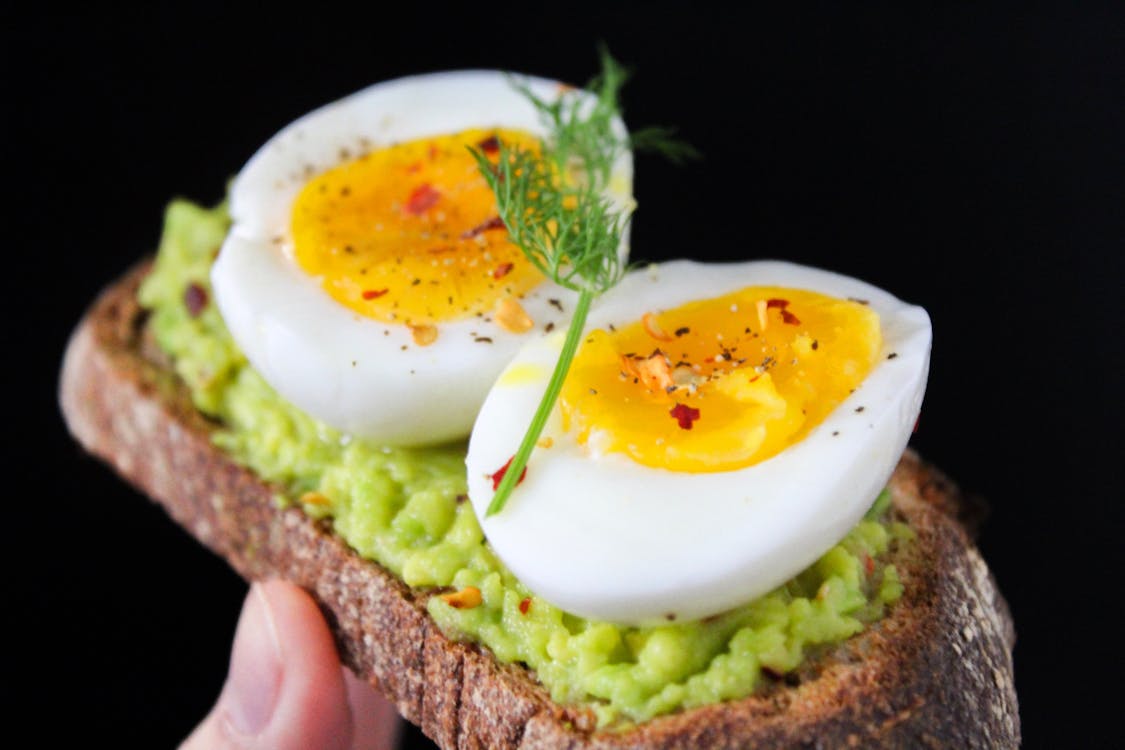
Image Credit: Doan from Pexels
#9. Whole Grains: Steady Energy Source
Incorporating whole grains like quinoa, brown rice, and oats into your meals ensures a gradual release of glucose. This provides sustained energy without the crashes associated with simple sugars. Whole grains offer a steady stream of fuel for your brain, supporting cognitive function without the energy roller coaster.
Experimenting with whole grains can add variety to your meals. Swap white rice for brown, or try incorporating quinoa into your salads for a nutrient-packed twist. Choose whole grain bread for sandwiches and wraps to make your meals more brain-friendly!
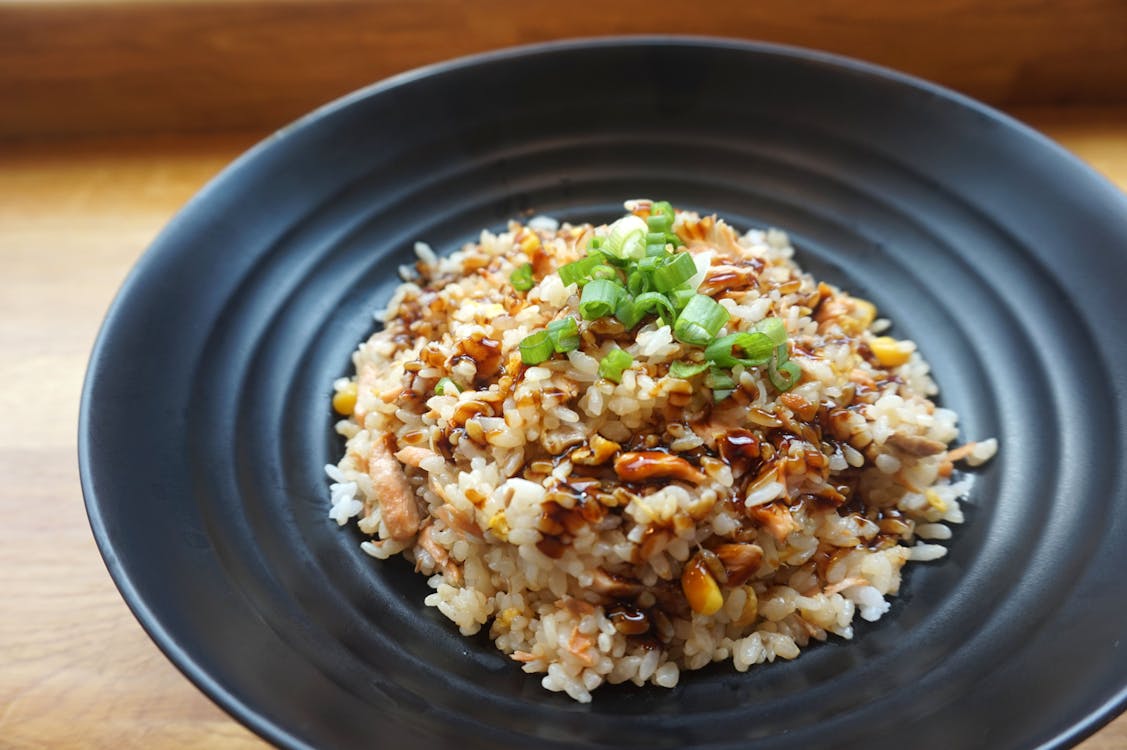
Image Credit: Chen from Pexels
#10. Turmeric: The Golden Spice
Turmeric, with its active compound curcumin, is known for its anti-inflammatory and antioxidant properties. While adding it to your meals might not turn you into a genius overnight, research by Sahdeo Prasad and Bharat B. Aggarwals from the National Library of Medicine suggests that curcumin may have benefits for brain health and may help in protecting against cognitive decline.
Including turmeric in your diet doesn't require elaborate recipes. A dash of turmeric in your curry or a golden milk latte can be simple yet effective ways to incorporate this golden spice! Add turmeric to roasted vegetables for an earthy flavor or use it to season your rice or quinoa dishes.
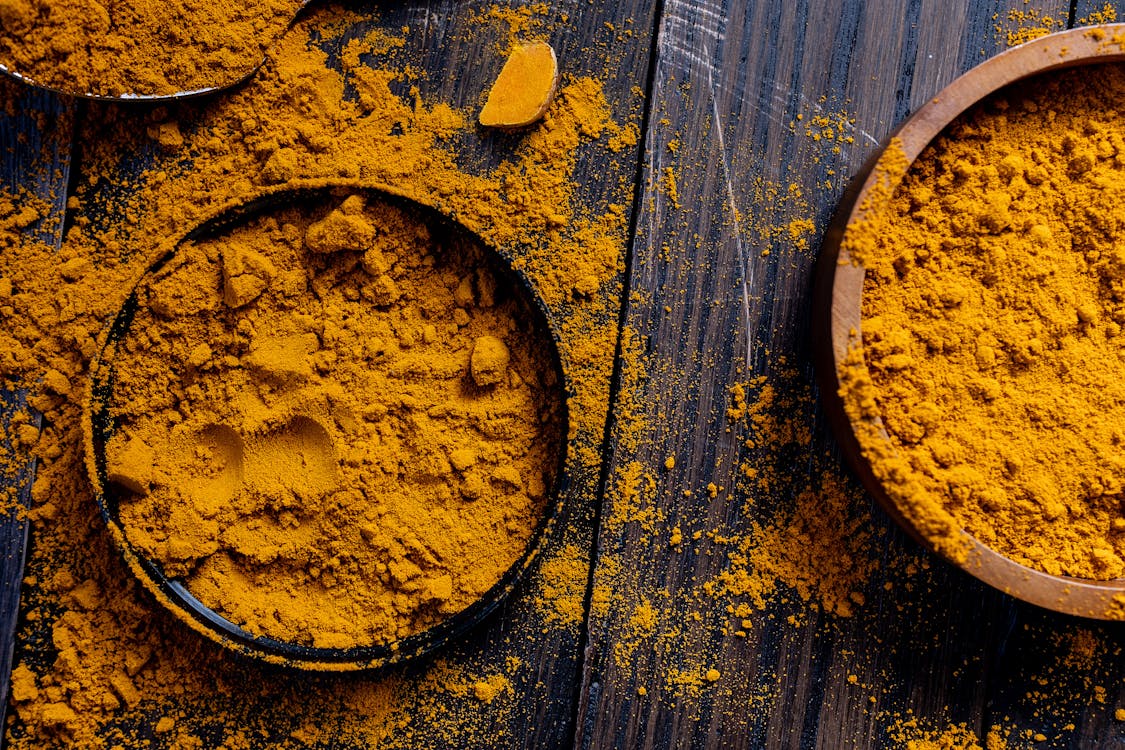
Image Credit: Solano from Pexels
Foods to Avoid Before an Exam
While certain foods can elevate your energy and mood, others may have the opposite effect.
#1. High Sugar Snacks
While high-sugar snacks may give you a quick energy boost, the subsequent crash can leave you feeling tired and unfocused. It's like a roller coaster for your blood sugar levels, which isn't ideal when you need steady concentration. Opting for snacks with natural sweetness, like a piece of fruit or yogurt with honey, can provide a more sustained energy release without the sugar crash. Consider a banana with peanut butter or Greek yogurt with berries for a balanced and energy-boosting snack!

Image Credit: Grey from Pexels
#2. Greasy Foods
Foods high in saturated fats, like deep-fried or excessively greasy options, can be tough for your digestive system to handle. This diverts energy away from your brain, potentially leading to sluggishness and reduced cognitive function. Instead, choose lighter options such as grilled or baked lean proteins like chicken or turkey. Incorporate healthy fats from sources like avocados, nuts, and olive oil into your meals for sustained energy without the heaviness.

Image Credit: Jordan from Pexels
#3. Excessive Caffeine
While a moderate amount of caffeine can enhance alertness, going overboard can lead to jitteriness, anxiety, and decreased focus. Balance is key – consider alternatives like herbal teas or decaffeinated options. Opt for green tea or herbal teas, which provide a gentle energy boost without the jittery effects of excessive caffeine. For me, the ones that calm me down the most are chamomile, dandelion root, or peppermint tea!
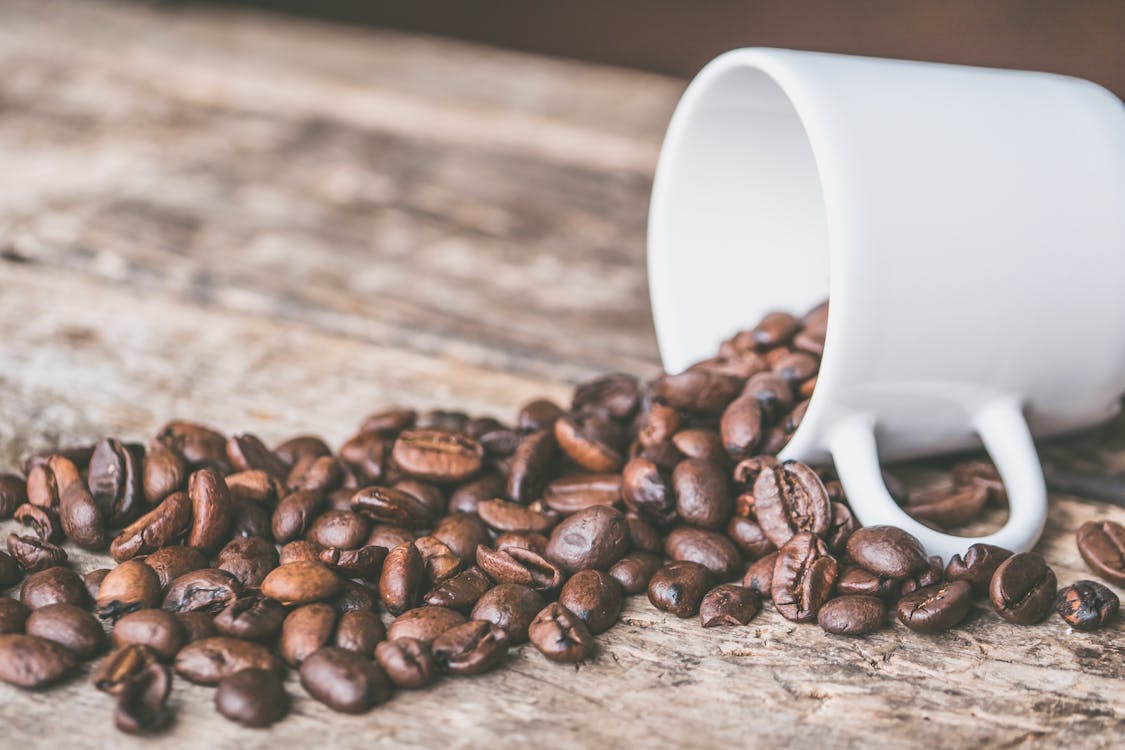
Image Credit: Lewis from Pexels
#4. Processed Foods
Highly processed foods, loaded with artificial additives and preservatives, may negatively impact cognitive function. Opting for whole, nutrient-dense foods ensures your brain gets the fuel it needs without interference from artificial substances. Choose whole foods over processed options whenever possible.
Snack on fresh fruits, vegetables, and nuts instead of reaching for pre-packaged snacks. Prepare simple meals using fresh ingredients to provide your body and brain with essential nutrients. Remember, healthy meals don’t have to be boring!
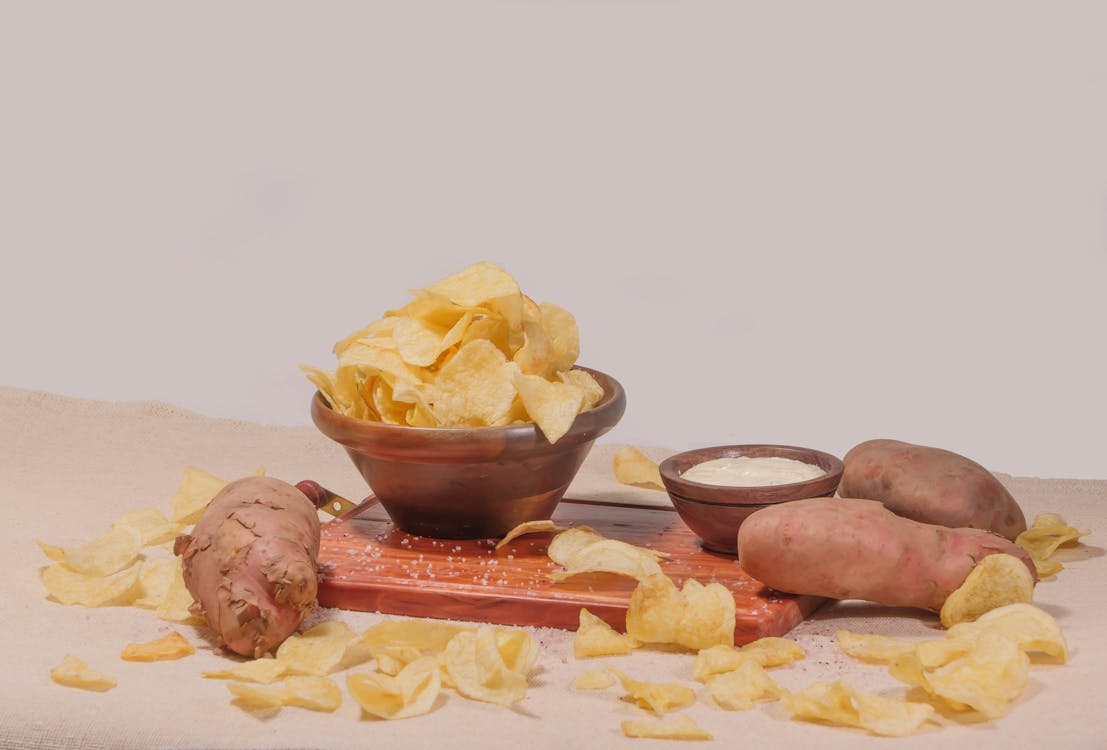
Image Credit: Ruiz from Pexels
Conclusion
As you navigate the challenges of school and exams, remember that your dietary choices play a pivotal role in determining your energy levels and mood. Embrace the power of brain-boosting foods, avoid the pitfalls of energy-draining options, and indulge in energy-boosting recipes to fuel your success. With a mindful approach to nutrition, you'll be well on your way to acing those exams and conquering the academic journey with a positive mindset. Eat healthy and study hard!




